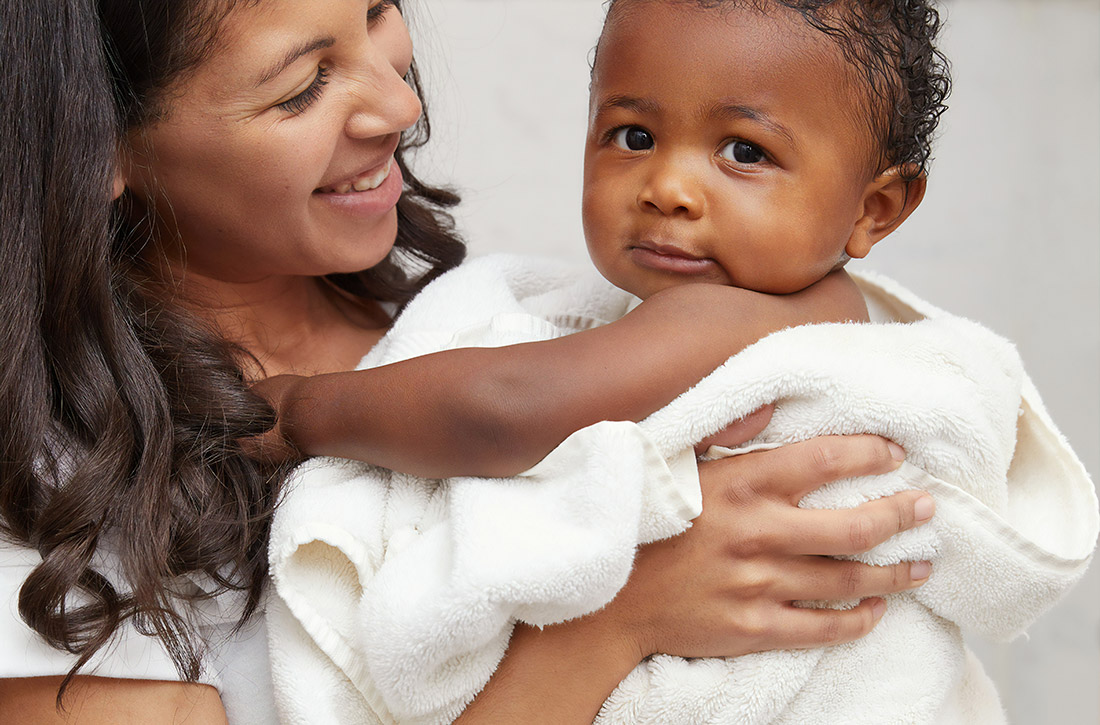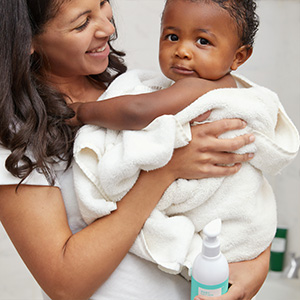The first poo you encounter will be a sticky, greenish-black, tar like thing that’ll be hard to remove from your baby’s bottom. This is called meconium and is made up of the stuff they ingested while they were inside your womb.
Meconium poo will most likely be in their first 48 hours. When they are a few days old their poo will change depending on whether they are breastfed or formula-fed. If your baby is breastfed their poo will be a shade of yellow, runny with no smell. If they are formula-fed, it’ll be a darker brown, more solid and will have a smell. Sometimes formula-fed babies’ poo will be a dark green but this is just dependent on the baby formula you choose. Baby girls sometimes have a little bit of white discharge or blood in their first nappies. This is nothing to worry about, it’s just caused by the mother’s hormones crossing over through the placenta during pregnancy.
Look out for your little one’s bottom. Their bottom can get irritated from being in the dirt and wet, so try and change them as soon as you can. You don’t have to put their nappy on straight away either; some air will do them good. There are many different baby wipes on the market, but just some cotton wool or a warm damp cloth will actually be softer.

How often should they poo?
When newborn, they may poo after each feed if they are breastfed, so stock up on those nappies (12 a day isn’t unusual). If they are formula-fed they can poo up to 5 times each day. Once they are about 6 weeks old, it will change and breastfed babies can go for a couple days without a poo. Formula-fed babies might poo once a day or even once a week when they are a few months old, though they will smell much stronger than breastfed babies. Even if they don’t poo for a few days and you are feeling worried about constipation, just remember that as long as it’s soft they are ok.
Their poo may change from day to day and that’s normal too, but there are some things you want to watch out for:
- Poo becomes extremely smelly
- Turns very watery
- Becomes much harder
- You see blood
- Goes very pale
If you notice any of these, you should talk to your healthcare provider.
Do they have diarrhoea?
Diarrhoea is common among newborns because they are still developing, and their digestive system is very sensitive to this new, outside world. It is normal for your baby’s nappy to be a little runny, especially if they are breastfed. However, if they are leaking more often than usual then check out these diarrhoea symptoms:
- Fever
- Refusing milk
- Fewer wet nappies
- Strong smelling pee
If you notice any of these symptoms, you must rehydrate your baby. Top them up with fluids and talk to their doctor.

